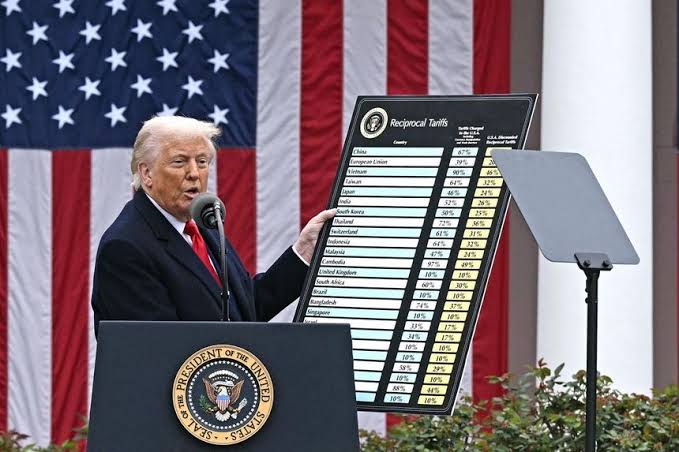United States President Donald Trump has announced a set of tariffs on all imports into the country, imposing a 14 percent tariff on Nigerian exports.
According to 2023 data from the Observatory of Economic Complexity (OEC), Nigeria exported goods worth $6.29 billion to the United States. The key exports included crude petroleum ($4.73 billion), petroleum gas ($920 million), and nitrogenous fertilizers ($167 million). Over the past five years, Nigeria’s exports to the US have grown at an annualized rate of 1.59 percent, rising from $5.81 billion in 2018 to $6.29 billion in 2023.
Trump’s executive order establishes a “baseline” 10 percent tariff on all imports and introduces individualized reciprocal tariffs targeting over 60 countries.
In a statement, the US president remarked that foreign leaders requesting exemptions should first eliminate their own tariffs on American goods.
Certain provisions of the order take effect immediately, while others have staggered implementation timelines.
Trump specifically announced that, effective at midnight, a 25 percent tariff would be imposed on all foreign-made automobiles.
The “baseline” 10 percent tariff is set to take effect on April 5, with higher rates for select trade partners beginning on April 9.
The US government justifies the 14 percent tariff on Nigeria as a response to the country’s existing 27 percent tariff on US goods.
Factors such as currency manipulation and trade barriers were also cited as contributing reasons for the decision.
Several other countries, including China and Mexico, which have already been grappling with prior tariff hikes, face additional increases under the new policy.
The full list of affected nations and their respective tariff rates is expected to be released in the coming days.




